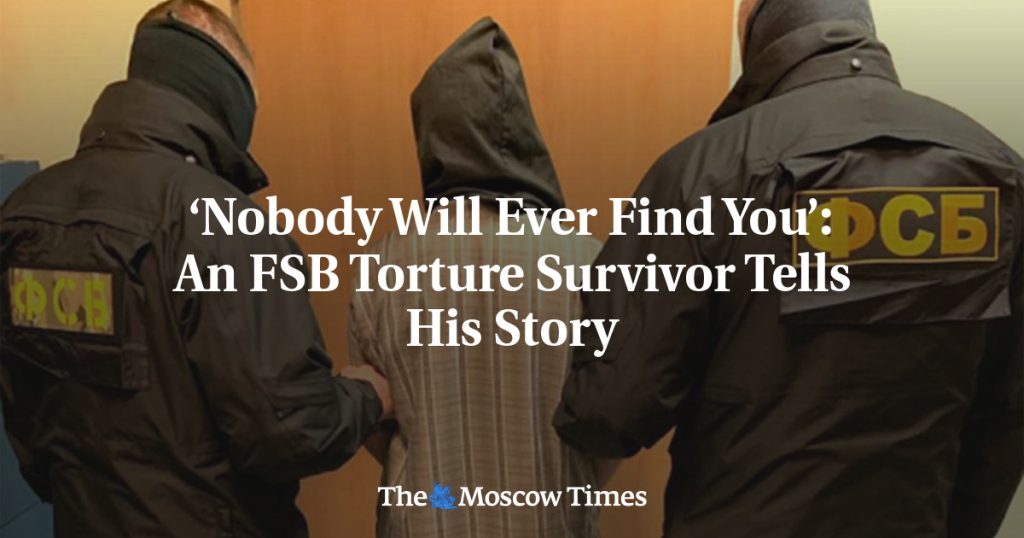Denis, a 34-year-old man, shares his harrowing experience of being arrested by the Federal Security Service (FSB) in southern Russia on suspicion of involvement in an anti-Kremlin paramilitary group fighting alongside the Ukrainian army. Prior to his arrest, Denis was part of the fan culture surrounding Moscow’s FC Spartak football team and supported Ukraine when Russia invaded in February 2022. He believes the FSB became interested in him after a pro-war fan told authorities that he was planning to enlist in one of the Russian paramilitary groups fighting in Ukraine.
While crossing the border with Georgia, Denis was stopped by border guards who found a tattoo of an Iron Cross on his shoulder, a symbol considered extremist in Russia. This led to an interrogation where Denis was accused of wanting to kill Russians and questioned on his connections to friends fighting for Ukraine. The interrogation quickly turned violent, with Denis being beaten and electrocuted by the guards. Despite enduring torture, Denis maintained his composure and eventually managed to escape the room he was held in.
Following his ordeal at the border, Denis was transferred to local police custody and faced further charges of disorderly conduct and displaying an extremist symbol due to his tattoo. Despite his mother, a lawyer, attempting to assist him legally, Denis was detained for a total of 26 days and faced mistreatment while in custody. After his release, Denis was arrested again upon returning to Moscow and was coerced into cooperating with the FSB through threats and intimidation.
Denis eventually made the decision to leave Russia due to the fear and intimidation he faced from law enforcement. His departure was prompted by the realization that living in fear was not sustainable. According to human rights activist Yevgeny Smirnov, torture of suspects is encouraged among Russian law enforcement officers, despite being prohibited by law. The prioritization of suppressing opposition and supporting Ukraine over preventing actual terrorist threats has led to an increase in interrogation practices, including torture, being directed at political activists.
Recent cases, such as the Crocus City Hall massacre suspects appearing in court with signs of abuse after being tortured during interrogation, highlight the grim reality of interrogation practices in Russia. Experts believe that torture and abuse of suspects have become a coordinated policy within law enforcement, making it difficult for victims to seek justice. This shift in enforcement tactics indicates a troubling trend towards using violence and intimidation to suppress dissent and opposition, rather than addressing genuine security concerns. Despite facing adversity, Denis made the courageous decision to leave Russia in search of safety and freedom.


